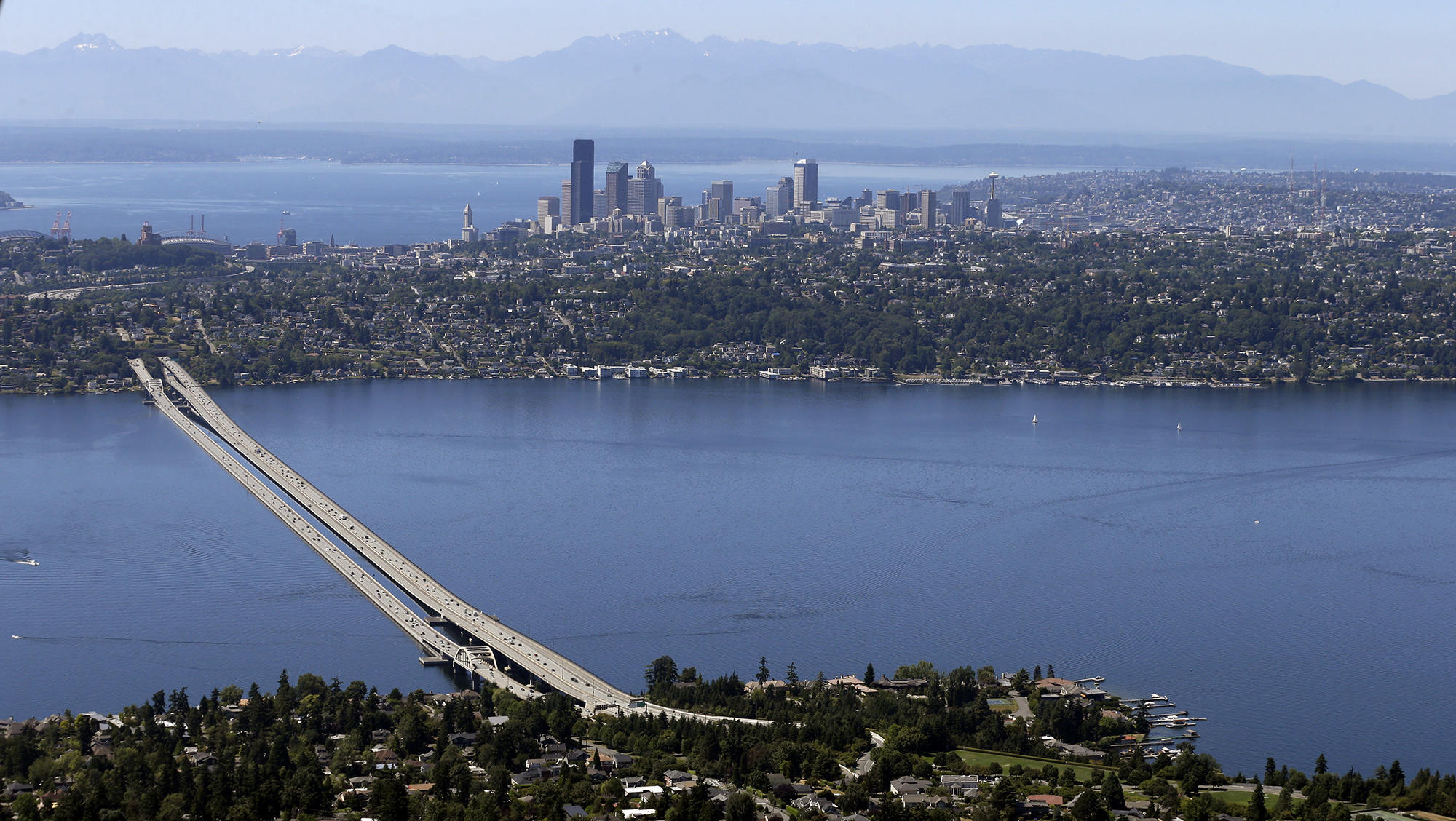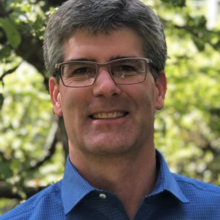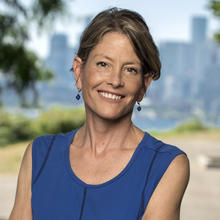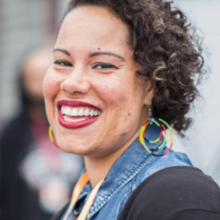The job: The mayor is Seattle's chief executive. They oversee and control most city offices and departments and make policy and budget recommendations to the Seattle City Council, which is Seattle's legislative body. Incumbent Jenny Durkan declined to seek reelection.
The job: The mayor is Seattle's chief executive. They oversee and control most city offices and departments and make policy and budget recommendations to the Seattle City Council, which is Seattle's legislative body. Incumbent Jenny Durkan declined to seek reelection.
Bruce Harrell served on the Seattle City Council from 2007 through 2019, including as its president beginning in 2016. Harrell went to Garfield High School and University of Washington School of Law. Before being elected to office, he served as legal counsel at US West, which was acquired by Qwest and then later CenturyLink. Following the resignation of former Mayor Ed Murray, Harrell served as interim mayor for five days before declining to serve out the remainder of Murray’s term. Here's a story reporter David Kroman wrote when Harrell joined the race.
Housing & Homelessness
Q: What benchmarks, milestones, or other metrics will you use to gauge if your efforts to house people are working? How will you keep residents apprised of your progress, including how money is spent?
A:
Seattle needs an accessible dashboard to demonstrate its metrics of success. Seattleites must trust our plans and our progress. The most important milestone is getting people into housing and off the street. We cannot allow the homelessness crisis to reach this level again.
Some key metrics will be cost per unit of housing, service costs, estimated number of people living on the street and number of encampments, average time spent in shelter or permanent supportive housing, rates of success in staying out of homelessness – by housing type and by provider. We’ll look at this data broadly and granularly on a case-by-case basis.
Through my proposed Race and Data Initiative, we’ll analyze disparities in who is being best served – by race, ethnicity, age, gender, gender identity, sexual orientation, and other factors. Using that data, we’ll invest in culturally-competent and equitable services that get results. Our data will be public and we will evaluate the impressions of those served, residents, neighborhoods and community members to understand their perception of the City’s effectiveness at addressing the homelessness crisis.
Q: When it comes to people living on sidewalks, in parks, and other public spaces, where will you direct resources and what will those resources be told to do?
A:
You will see a Harrell administration direct resources with a new level of urgency and engagement toward getting people out of parks and playfields, off streets, and into housing with healthcare access and wraparound services. We will work to build and acquire 1,000 units of shelter and housing in the first six months of my administration, and 2,000 by the end of my first year in office. We will drive needed investments in service providers, counselors, and programs, including culturally-competent care and outreach.
We will spend the resources necessary to give those living unsheltered the support they need. And, as we restore lives, we will also work to restore parks and open spaces. These efforts can – and must – be done in tandem. As neighbors move into housing we will work to swiftly clean up former encampments, so that these areas can be safely used and enjoyed by the public.
Policing & Public Safety
Q: How will you improve emergency service response times without simply enlarging the police department? What alternative solutions to police do you like for preventing or reducing crime?
A:
Far too often, neighbors tell me they’re unsure in the event of a public safety emergency not only when police will respond – but if they will respond at all. This is completely unacceptable – every person in every community has the absolute right to feel safe. My steadfast commitment is to restoring public safety, ensuring maximum seven-minute response times, and building community trust with law enforcement.
Alternative responses to situations like mental health crises and non-violent disputes can address issues without escalation, while police focus on calls they’re best equipped to address. The results of the city’s Health One unit are encouraging, and demonstrate how a multidisciplinary team with specialized skills and focuses can better approach certain kinds of emergencies or crises. In the long run, this will require a significant analysis of all police and emergency responses, review of whether police were needed or effective, and then the thoughtful development of a model and system for well-calibrated and well-deployed emergency response teams.
All that said, further defunding and department attrition is not a solution. We must also restore staffing to national best practices, invest in stronger de-escalation and intervention programs, root out bias with internal culture change, and build a more responsive, representative police force.
Q: What qualities will you look for in a police chief?
A: I’ve been involved in the hiring of the last two chiefs, and, as mayor, will bring unmatched experience to the search process. We need a chief who reflects our values and shares our commitment to culture change and reform. Someone who will embrace our efforts to recruit a representative police force and realize true community policing. A leader who will do the hard work, every day, creating an SPD where we celebrate good outcomes and thoroughly and vocally reject bias and brutality.
We will run a fully comprehensive search and an open and transparent process, looking both within the department and nationwide to identify the next chief. The community must be involved to ensure we hire the right person, and I will make sure members of the community, and the Community Police Commission, have an involved role in the search process.
Taxes & The Economy
Q: How would you work with the City Council to help taxpayers see and understand how tax dollars are being spent?
A:
Seattle is divided into seven council districts, but we have yet to change our core neighborhood investment strategy. I will explore appropriating real resources – $10 million dollars would make an impact – in each of the seven districts to provide Council members with the opportunity to work directly with their communities to invest in specific localized priorities: small business recovery; homelessness solutions; parks and open space; cleanliness; pedestrian and public safety strategies; or cultural facility preservation.
With funds earmarked specifically for council districts, we will set the expectation that council members work side-by-side with their communities to determine how that money is spent, addressing unique local needs. For many Seattleites today, the budgeting process is removed and unapproachable.
My plan would highlight these district-specific dollars to the public, so that we foster collaboration and improve community outreach. Neighbors will be encouraged to provide suggestions about the best use of these funds – from community programs to park enhancements to cultural space preservation and small business recovery – there is a city full of possibilities.
This plan also ensures council members better inform the mayor and council on their district priorities and allows them to leverage these investments with other city general sub-funds, state or federal funds, or private funding.
Urban Planning & Transportation
Q: How would you propose increases for multi-family housing in Seattle? Would you require parking for new larger multi-family housing? How do you plan to support public transit as the city continues to grow?
A:
/*-->*/
Early in my City Council tenure, I recognized the importance of increasing our housing supply, voting in support of efforts to expand backyard cottages and upzoning areas around transit near Downtown, Roosevelt, West Seattle, and more. I made it easier to build ADUs, a commonsense housing solution, and I helped pass and continuously update the MHA program to significantly expand density and affordable housing across the city. We know the solution to the affordable housing crisis is more housing, and I want to make sure we develop that housing in an intersectional, equitable, and thoughtful manner.
I am committed to increasing density and building out affordable housing, especially in delivering development in areas that have already been upzoned. Every neighborhood will have to embrace additional housing if we are going to meet our goals and ensure everyone has an affordable place to call home, especially as our city and region grow over the next several decades.
Everyone should have access to a robust transit system, to parks and open spaces, and to needed amenities and services like childcare, healthy food, and more. That also means we need to rethink parking requirements for new developments, especially as we focus growth along transit lines. Reducing reliance on parking and cars brings down development costs and helps us meet our greenhouse gas emission goals.
I will work with the council to convene a community and stakeholder-led process to guide us forward, similar to the Housing Affordability and Livability Advisory Committee. Rather than enter the process with a predetermined outcome, we can define a thoughtful plan for the future of zoning in our city, informed by experts, understood and molded by community, and implementable with both bold and practical solutions.
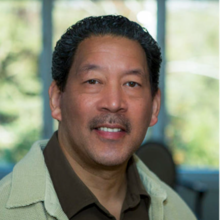
Bruce Harrell
Bruce Harrell served on the Seattle City Council from 2007 through 2019, including as its president beginning in 2016. Harrell went to Garfield High School and University of Washington School of Law. Before being elected to office, he served as legal counsel at US West, which was acquired by Qwest and then later CenturyLink. Following the resignation of former Mayor Ed Murray, Harrell served as interim mayor for five days before declining to serve out the remainder of Murray’s term. Here's a story reporter David Kroman wrote when Harrell joined the race.
Housing & Homelessness
Q: What benchmarks, milestones, or other metrics will you use to gauge if your efforts to house people are working? How will you keep residents apprised of your progress, including how money is spent?
A:
Seattle needs an accessible dashboard to demonstrate its metrics of success. Seattleites must trust our plans and our progress. The most important milestone is getting people into housing and off the street. We cannot allow the homelessness crisis to reach this level again.
Some key metrics will be cost per unit of housing, service costs, estimated number of people living on the street and number of encampments, average time spent in shelter or permanent supportive housing, rates of success in staying out of homelessness – by housing type and by provider. We’ll look at this data broadly and granularly on a case-by-case basis.
Through my proposed Race and Data Initiative, we’ll analyze disparities in who is being best served – by race, ethnicity, age, gender, gender identity, sexual orientation, and other factors. Using that data, we’ll invest in culturally-competent and equitable services that get results. Our data will be public and we will evaluate the impressions of those served, residents, neighborhoods and community members to understand their perception of the City’s effectiveness at addressing the homelessness crisis.
Q: When it comes to people living on sidewalks, in parks, and other public spaces, where will you direct resources and what will those resources be told to do?
A:
You will see a Harrell administration direct resources with a new level of urgency and engagement toward getting people out of parks and playfields, off streets, and into housing with healthcare access and wraparound services. We will work to build and acquire 1,000 units of shelter and housing in the first six months of my administration, and 2,000 by the end of my first year in office. We will drive needed investments in service providers, counselors, and programs, including culturally-competent care and outreach.
We will spend the resources necessary to give those living unsheltered the support they need. And, as we restore lives, we will also work to restore parks and open spaces. These efforts can – and must – be done in tandem. As neighbors move into housing we will work to swiftly clean up former encampments, so that these areas can be safely used and enjoyed by the public.
Policing & Public Safety
Q: How will you improve emergency service response times without simply enlarging the police department? What alternative solutions to police do you like for preventing or reducing crime?
A:
Far too often, neighbors tell me they’re unsure in the event of a public safety emergency not only when police will respond – but if they will respond at all. This is completely unacceptable – every person in every community has the absolute right to feel safe. My steadfast commitment is to restoring public safety, ensuring maximum seven-minute response times, and building community trust with law enforcement.
Alternative responses to situations like mental health crises and non-violent disputes can address issues without escalation, while police focus on calls they’re best equipped to address. The results of the city’s Health One unit are encouraging, and demonstrate how a multidisciplinary team with specialized skills and focuses can better approach certain kinds of emergencies or crises. In the long run, this will require a significant analysis of all police and emergency responses, review of whether police were needed or effective, and then the thoughtful development of a model and system for well-calibrated and well-deployed emergency response teams.
All that said, further defunding and department attrition is not a solution. We must also restore staffing to national best practices, invest in stronger de-escalation and intervention programs, root out bias with internal culture change, and build a more responsive, representative police force.
Q: What qualities will you look for in a police chief?
A: I’ve been involved in the hiring of the last two chiefs, and, as mayor, will bring unmatched experience to the search process. We need a chief who reflects our values and shares our commitment to culture change and reform. Someone who will embrace our efforts to recruit a representative police force and realize true community policing. A leader who will do the hard work, every day, creating an SPD where we celebrate good outcomes and thoroughly and vocally reject bias and brutality.
We will run a fully comprehensive search and an open and transparent process, looking both within the department and nationwide to identify the next chief. The community must be involved to ensure we hire the right person, and I will make sure members of the community, and the Community Police Commission, have an involved role in the search process.
Taxes & The Economy
Q: How would you work with the City Council to help taxpayers see and understand how tax dollars are being spent?
A:
Seattle is divided into seven council districts, but we have yet to change our core neighborhood investment strategy. I will explore appropriating real resources – $10 million dollars would make an impact – in each of the seven districts to provide Council members with the opportunity to work directly with their communities to invest in specific localized priorities: small business recovery; homelessness solutions; parks and open space; cleanliness; pedestrian and public safety strategies; or cultural facility preservation.
With funds earmarked specifically for council districts, we will set the expectation that council members work side-by-side with their communities to determine how that money is spent, addressing unique local needs. For many Seattleites today, the budgeting process is removed and unapproachable.
My plan would highlight these district-specific dollars to the public, so that we foster collaboration and improve community outreach. Neighbors will be encouraged to provide suggestions about the best use of these funds – from community programs to park enhancements to cultural space preservation and small business recovery – there is a city full of possibilities.
This plan also ensures council members better inform the mayor and council on their district priorities and allows them to leverage these investments with other city general sub-funds, state or federal funds, or private funding.
Urban Planning & Transportation
Q: How would you propose increases for multi-family housing in Seattle? Would you require parking for new larger multi-family housing? How do you plan to support public transit as the city continues to grow?
A:
/*-->*/
Early in my City Council tenure, I recognized the importance of increasing our housing supply, voting in support of efforts to expand backyard cottages and upzoning areas around transit near Downtown, Roosevelt, West Seattle, and more. I made it easier to build ADUs, a commonsense housing solution, and I helped pass and continuously update the MHA program to significantly expand density and affordable housing across the city. We know the solution to the affordable housing crisis is more housing, and I want to make sure we develop that housing in an intersectional, equitable, and thoughtful manner.
I am committed to increasing density and building out affordable housing, especially in delivering development in areas that have already been upzoned. Every neighborhood will have to embrace additional housing if we are going to meet our goals and ensure everyone has an affordable place to call home, especially as our city and region grow over the next several decades.
Everyone should have access to a robust transit system, to parks and open spaces, and to needed amenities and services like childcare, healthy food, and more. That also means we need to rethink parking requirements for new developments, especially as we focus growth along transit lines. Reducing reliance on parking and cars brings down development costs and helps us meet our greenhouse gas emission goals.
I will work with the council to convene a community and stakeholder-led process to guide us forward, similar to the Housing Affordability and Livability Advisory Committee. Rather than enter the process with a predetermined outcome, we can define a thoughtful plan for the future of zoning in our city, informed by experts, understood and molded by community, and implementable with both bold and practical solutions.
M. Lorena González has been a member of the Seattle City Council since 2015 and is the council's president. The daughter of immigrants, González grew up in Eastern Washington where she worked picking cherries from a young age. She later earned her law degree from Seattle University. An attorney, she worked briefly in former Mayor Ed Murray’s office as his legal counsel before running for office. Prior to that, she worked in private practice on civil rights issues. Here’s a story reporter David Kroman wrote about the mayoral race.
Housing & Homelessness
Q: How can housing in Seattle be made more affordable for full-time workers paid at or close to minimum wage?
A: Housing is the lasting solution to homelessness. My first priority is to secure funding to rapidly build more housing, with wraparound services for individuals who need that support. As Seattle Mayor, I know we must lead in our region and work closely with local, regional, state and federal partners to develop the housing we need: about 37,000 more affordable homes for families and individuals living on extremely low incomes (according to the latest 2020 McKinsey & Co. report).
I am also committed to creating an inclusive and interconnected city, investing wisely and deeply in the housing and strong public transit we need. We should make sure more homes of all shapes and sizes are available for our neighbors: legalize housing like duplexes, triplexes, and other lower cost homes across Seattle. To build the affordable homes we need, we have to change outdated laws that prevent multi-family housing in 70% of Seattle’s residential areas. As the next Mayor, I will center this vision of a vibrant city as we plan for and put Seattle on a path to being an affordable and sustainable city.
Q: What benchmarks, milestones, or other metrics will you use to gauge if your efforts to house people are working? How will you keep residents apprised of your progress, including how money is spent?
A: The metrics that matter are how many people we have successfully moved into suitable shelter and how many people we have moved from shelter into permanent housing, providing the services and support they need to restart their lives. We will assess our progress addressing the root causes of homelessness by looking at how affordable our city becomes – whether we lower overall housing costs, how economically diverse neighborhoods become as we invest in them, whether we lower the unemployment rate, and increase the percentage of our population working jobs that pay a living wage.
We will ensure that we are funding programs that effectively transition people to shelter and housing and not waste taxpayer resources on those that don’t. Programs like the Navigation Team, which only had a 6% success rate placing people into shelter, are a waste of taxpayer dollars and should not be funded. My administration will provide leadership, guidance and metrics to the council, whose job it is to fund programs and conduct oversight to effectively allocate dollars to programs that work.
Q: When it comes to people living on sidewalks, in parks, and other public spaces, where will you direct resources and what will those resources be told to do?
A: Our emergency response must be guided by public health starting on day one. I will work rapidly to increase shelter capacity and assess encampments across all neighborhoods and quickly work with city staff and community service providers to identify people we can immediately help move inside into hotel rooms and other non-congregate settings. Our current system is failing the people experiencing homelessness in Seattle and King County who suffer from serious mental health and substance use issues. I will push for more wraparound services for people with mental health and substance use disorders, skilled 24/7 crisis response teams (like Health One and Triage One), and service-enriched supportive housing for those who need it.
Policing & Public Safety
Q: How will you scale up non-law enforcement alternatives to mental health and homelessness?
/*-->*/ /*-->*/ /*-->*/ /*-->*/ /*-->*/ /*-->*/ /*-->*/ /*-->*/ /*-->*/ /*-->*/ /*-->*/ /*-->*/ /*-->*/ /*-->*/ As a civil rights lawyer for more than a decade, I worked tirelessly to get justice for victims of police violence and racially biased policing across Washington and Seattle. As Mayor, I will work to address our city’s public safety challenges while ensuring that we have true public safety where our Black, brown, and indigenous community members do not have to fear police violence.
Right now we are asking the police to do too many things. Studies show that 50% of police calls do not need armed sworn officers to respond. My administration will scale up the Community Service Officer program to improve response for non-violent crimes, including property crimes. Community service officers can be hired and trained faster than police officers and are less expensive for the city and more responsive to neighborhood safety concerns. We will also increase funding for programs like Health One Mobile units, so that appropriately trained professionals are responding to behavioral health emergencies.
Scaling up these units will allow our police force to shift their focus to more serious violent crime. And I will hold them accountable to do that job effectively and in a manner that respects the civil rights, dignity and liberty of all Seattleites.
Q: How will you lead changes in providing public safety to those communities that have historically had poor interactions with police and may also have higher crime rates? How would you increase police accountability?
/*-->*/ /*-->*/ /*-->*/ /*-->*/ /*-->*/ /*-->*/ /*-->*/ /*-->*/ /*-->*/ /*-->*/ /*-->*/ /*-->*/ /*-->*/ /*-->*/ As a civil rights lawyer for more than a decade, I worked tirelessly to get justice for victims of police violence and racially biased policing across Washington and Seattle. In one of my most high-profile cases, Monetti v. Seattle, I sued the Seattle Police Department on behalf of a young Latino man after a detective threatened to “beat the Mexican piss” out of him, while other officers stood around observing and failing to intervene. My work on this and other civil rights cases is what fuels my vision and commitment to transform Seattle’s approach to public safety and accountability. We need real police accountability that meets this civil rights moment, and we need leaders with a track record to implement it. In 2017, I worked with the community to champion the passage of landmark legislation to expand civilian oversight of the police department, establish the Office of Inspector General for Public Safety, and make the Community Police Commission permanent. As the next Mayor, I will bring together community, council and labor to ensure that the next contract with the police officer’s guild includes critical components of the 2017 Police Accountability Ordinance, which I worked to pass, that have been left on the table by past mayors. There will be zero tolerance for racial bias or excessive use of force.
Q: How will you improve emergency service response times without simply enlarging the police department? What alternative solutions to police do you like for preventing or reducing crime?
/*-->*/ /*-->*/ /*-->*/ /*-->*/ /*-->*/ /*-->*/ /*-->*/ /*-->*/ /*-->*/ /*-->*/ /*-->*/ /*-->*/ /*-->*/ /*-->*/ Armed law enforcement should not be responding to a mental health crisis or a non-violent situation.
This is not only an unnecessary use of resources but too often results in needless death and trauma in our Black, brown, and indigenous communities. My administration will work to shift funds toward programs like the Health One Mobile units, the Crisis Response Team, alternative community safety programs like Community Service Officers, and other public-health models that rapidly address the health and crisis needs of those experiencing homelessness.
Taxes & The Economy
Q: How will you raise local tax revenue to support the city’s needs? What are the needs that require the most investment?
/*-->*/
/*-->*/
/*-->*/
/*-->*/
/*-->*/
/*-->*/
/*-->*/
/*-->*/
/*-->*/
/*-->*/
A: Big corporations and the very wealthy must finally pay their fair share. During the COVID-19 pandemic, average Seattle residents struggled to help their children learn, pay rent and mortgages, and stay safe, while Amazon’s profits soared 220%.
The largest corporations and wealthiest individuals can afford to invest in a better future for the city they call home — they must, or many more Seattleites will lose their homes.
I will be a Mayor who is willing to stand up to the wealthy and big corporations — I have the track record to prove it. I will work with community leaders and the Council to start rebalancing the tax code so regular Seattleites don’t foot the bills alone anymore. We can and will strengthen Seattle so we can all be at home here.
Q: How do you think we can tax in a way that doesn’t contribute to a regressive tax structure? Also, how can we keep elders and other vulnerable people in their neighborhoods and homes with so much of the city’s budget depending on property taxes?
A: /*-->*/ /*-->*/ /*-->*/ /*-->*/ /*-->*/ /*-->*/ /*-->*/ /*-->*/ /*-->*/ /*-->*/ I believe that the very wealthy and large corporations should pay their fair share of taxes and that is where I will focus. I do not believe that we should be placing additional burdens on homeowners, especially seniors trying to stay in their homes.
Q: How would you propose increases for multi-family housing in Seattle? Would you require parking for new larger multi-family housing? How do you plan to support public transit as the city continues to grow?
A: /*-->*/ /*-->*/ /*-->*/ /*-->*/ /*-->*/ /*-->*/ /*-->*/ /*-->*/ /*-->*/ /*-->*/ I am committed to creating an inclusive and interconnected city, investing wisely and deeply in the housing and strong public transit we need. We should make sure more homes of all shapes and sizes are available for our neighbors: legalize housing like duplexes, triplexes, and other lower cost homes across Seattle. To build the affordable homes we need, we have to change outdated laws that prevent multi-family housing in 70% of Seattle’s residential areas. As the next Mayor, I will center this vision of a vibrant city as we plan for and put Seattle on a path to being an affordable and sustainable city.
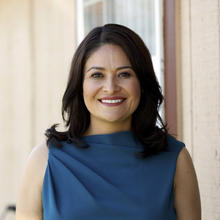
M. Lorena González
M. Lorena González has been a member of the Seattle City Council since 2015 and is the council's president. The daughter of immigrants, González grew up in Eastern Washington where she worked picking cherries from a young age. She later earned her law degree from Seattle University. An attorney, she worked briefly in former Mayor Ed Murray’s office as his legal counsel before running for office. Prior to that, she worked in private practice on civil rights issues. Here’s a story reporter David Kroman wrote about the mayoral race.
Housing & Homelessness
Q: How can housing in Seattle be made more affordable for full-time workers paid at or close to minimum wage?
A: Housing is the lasting solution to homelessness. My first priority is to secure funding to rapidly build more housing, with wraparound services for individuals who need that support. As Seattle Mayor, I know we must lead in our region and work closely with local, regional, state and federal partners to develop the housing we need: about 37,000 more affordable homes for families and individuals living on extremely low incomes (according to the latest 2020 McKinsey & Co. report).
I am also committed to creating an inclusive and interconnected city, investing wisely and deeply in the housing and strong public transit we need. We should make sure more homes of all shapes and sizes are available for our neighbors: legalize housing like duplexes, triplexes, and other lower cost homes across Seattle. To build the affordable homes we need, we have to change outdated laws that prevent multi-family housing in 70% of Seattle’s residential areas. As the next Mayor, I will center this vision of a vibrant city as we plan for and put Seattle on a path to being an affordable and sustainable city.
Q: What benchmarks, milestones, or other metrics will you use to gauge if your efforts to house people are working? How will you keep residents apprised of your progress, including how money is spent?
A: The metrics that matter are how many people we have successfully moved into suitable shelter and how many people we have moved from shelter into permanent housing, providing the services and support they need to restart their lives. We will assess our progress addressing the root causes of homelessness by looking at how affordable our city becomes – whether we lower overall housing costs, how economically diverse neighborhoods become as we invest in them, whether we lower the unemployment rate, and increase the percentage of our population working jobs that pay a living wage.
We will ensure that we are funding programs that effectively transition people to shelter and housing and not waste taxpayer resources on those that don’t. Programs like the Navigation Team, which only had a 6% success rate placing people into shelter, are a waste of taxpayer dollars and should not be funded. My administration will provide leadership, guidance and metrics to the council, whose job it is to fund programs and conduct oversight to effectively allocate dollars to programs that work.
Q: When it comes to people living on sidewalks, in parks, and other public spaces, where will you direct resources and what will those resources be told to do?
A: Our emergency response must be guided by public health starting on day one. I will work rapidly to increase shelter capacity and assess encampments across all neighborhoods and quickly work with city staff and community service providers to identify people we can immediately help move inside into hotel rooms and other non-congregate settings. Our current system is failing the people experiencing homelessness in Seattle and King County who suffer from serious mental health and substance use issues. I will push for more wraparound services for people with mental health and substance use disorders, skilled 24/7 crisis response teams (like Health One and Triage One), and service-enriched supportive housing for those who need it.
Policing & Public Safety
Q: How will you scale up non-law enforcement alternatives to mental health and homelessness?
/*-->*/ /*-->*/ /*-->*/ /*-->*/ /*-->*/ /*-->*/ /*-->*/ /*-->*/ /*-->*/ /*-->*/ /*-->*/ /*-->*/ /*-->*/ /*-->*/ As a civil rights lawyer for more than a decade, I worked tirelessly to get justice for victims of police violence and racially biased policing across Washington and Seattle. As Mayor, I will work to address our city’s public safety challenges while ensuring that we have true public safety where our Black, brown, and indigenous community members do not have to fear police violence.
Right now we are asking the police to do too many things. Studies show that 50% of police calls do not need armed sworn officers to respond. My administration will scale up the Community Service Officer program to improve response for non-violent crimes, including property crimes. Community service officers can be hired and trained faster than police officers and are less expensive for the city and more responsive to neighborhood safety concerns. We will also increase funding for programs like Health One Mobile units, so that appropriately trained professionals are responding to behavioral health emergencies.
Scaling up these units will allow our police force to shift their focus to more serious violent crime. And I will hold them accountable to do that job effectively and in a manner that respects the civil rights, dignity and liberty of all Seattleites.
Q: How will you lead changes in providing public safety to those communities that have historically had poor interactions with police and may also have higher crime rates? How would you increase police accountability?
/*-->*/ /*-->*/ /*-->*/ /*-->*/ /*-->*/ /*-->*/ /*-->*/ /*-->*/ /*-->*/ /*-->*/ /*-->*/ /*-->*/ /*-->*/ /*-->*/ As a civil rights lawyer for more than a decade, I worked tirelessly to get justice for victims of police violence and racially biased policing across Washington and Seattle. In one of my most high-profile cases, Monetti v. Seattle, I sued the Seattle Police Department on behalf of a young Latino man after a detective threatened to “beat the Mexican piss” out of him, while other officers stood around observing and failing to intervene. My work on this and other civil rights cases is what fuels my vision and commitment to transform Seattle’s approach to public safety and accountability. We need real police accountability that meets this civil rights moment, and we need leaders with a track record to implement it. In 2017, I worked with the community to champion the passage of landmark legislation to expand civilian oversight of the police department, establish the Office of Inspector General for Public Safety, and make the Community Police Commission permanent. As the next Mayor, I will bring together community, council and labor to ensure that the next contract with the police officer’s guild includes critical components of the 2017 Police Accountability Ordinance, which I worked to pass, that have been left on the table by past mayors. There will be zero tolerance for racial bias or excessive use of force.
Q: How will you improve emergency service response times without simply enlarging the police department? What alternative solutions to police do you like for preventing or reducing crime?
/*-->*/ /*-->*/ /*-->*/ /*-->*/ /*-->*/ /*-->*/ /*-->*/ /*-->*/ /*-->*/ /*-->*/ /*-->*/ /*-->*/ /*-->*/ /*-->*/ Armed law enforcement should not be responding to a mental health crisis or a non-violent situation.
This is not only an unnecessary use of resources but too often results in needless death and trauma in our Black, brown, and indigenous communities. My administration will work to shift funds toward programs like the Health One Mobile units, the Crisis Response Team, alternative community safety programs like Community Service Officers, and other public-health models that rapidly address the health and crisis needs of those experiencing homelessness.
Taxes & The Economy
Q: How will you raise local tax revenue to support the city’s needs? What are the needs that require the most investment?
/*-->*/
/*-->*/
/*-->*/
/*-->*/
/*-->*/
/*-->*/
/*-->*/
/*-->*/
/*-->*/
/*-->*/
A: Big corporations and the very wealthy must finally pay their fair share. During the COVID-19 pandemic, average Seattle residents struggled to help their children learn, pay rent and mortgages, and stay safe, while Amazon’s profits soared 220%.
The largest corporations and wealthiest individuals can afford to invest in a better future for the city they call home — they must, or many more Seattleites will lose their homes.
I will be a Mayor who is willing to stand up to the wealthy and big corporations — I have the track record to prove it. I will work with community leaders and the Council to start rebalancing the tax code so regular Seattleites don’t foot the bills alone anymore. We can and will strengthen Seattle so we can all be at home here.
Q: How do you think we can tax in a way that doesn’t contribute to a regressive tax structure? Also, how can we keep elders and other vulnerable people in their neighborhoods and homes with so much of the city’s budget depending on property taxes?
A: /*-->*/ /*-->*/ /*-->*/ /*-->*/ /*-->*/ /*-->*/ /*-->*/ /*-->*/ /*-->*/ /*-->*/ I believe that the very wealthy and large corporations should pay their fair share of taxes and that is where I will focus. I do not believe that we should be placing additional burdens on homeowners, especially seniors trying to stay in their homes.
Q: How would you propose increases for multi-family housing in Seattle? Would you require parking for new larger multi-family housing? How do you plan to support public transit as the city continues to grow?
A: /*-->*/ /*-->*/ /*-->*/ /*-->*/ /*-->*/ /*-->*/ /*-->*/ /*-->*/ /*-->*/ /*-->*/ I am committed to creating an inclusive and interconnected city, investing wisely and deeply in the housing and strong public transit we need. We should make sure more homes of all shapes and sizes are available for our neighbors: legalize housing like duplexes, triplexes, and other lower cost homes across Seattle. To build the affordable homes we need, we have to change outdated laws that prevent multi-family housing in 70% of Seattle’s residential areas. As the next Mayor, I will center this vision of a vibrant city as we plan for and put Seattle on a path to being an affordable and sustainable city.

